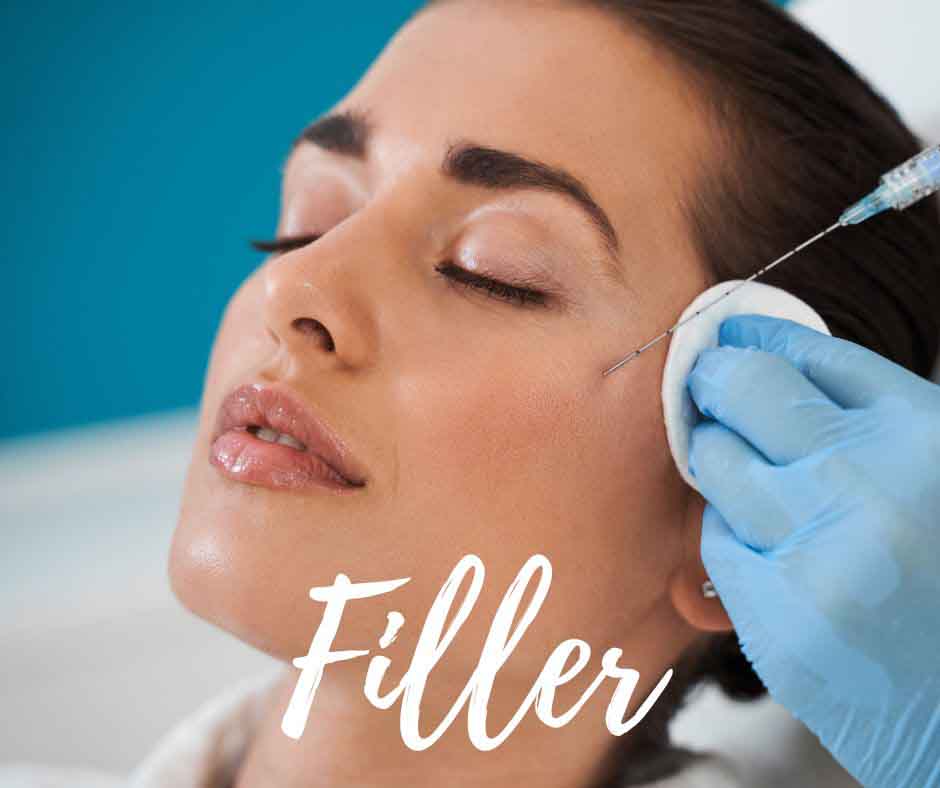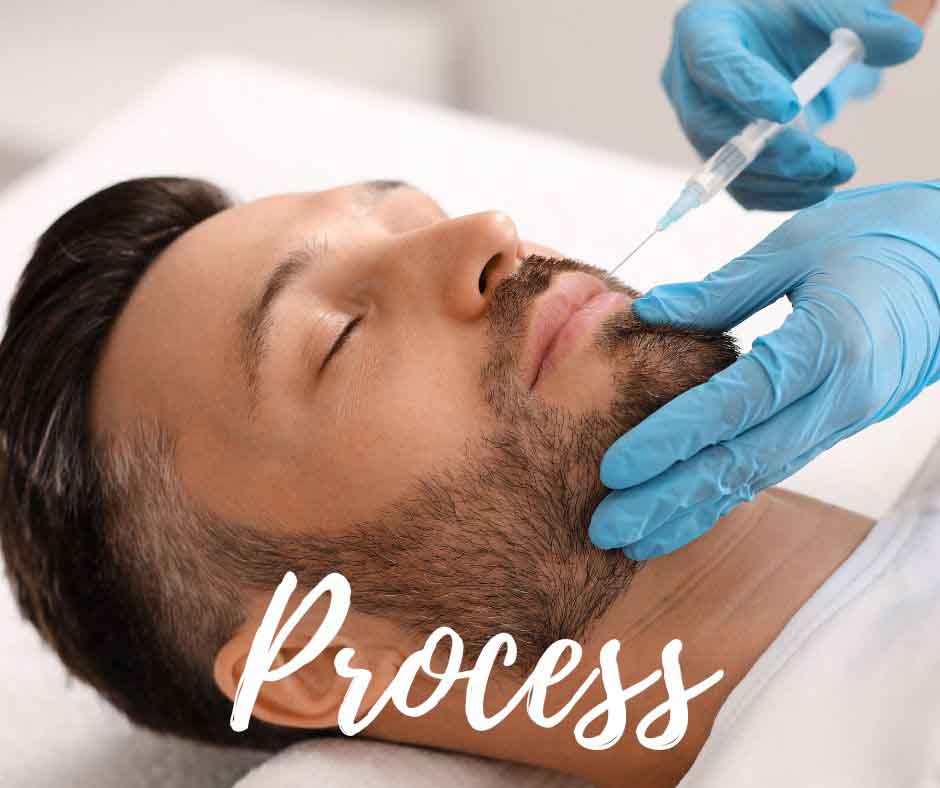Hyaluronic Acid Fillers
Give your face a boost!
Soft tissue fillers, such as stabilized hyaluronic acid, are used to smooth moderate to severe facial wrinkles. The folds around the nose, mouth, and forehead respond well to this treatment to improve the appearance of the face. Hyaluronic acid is used for the cosmetic treatment of facial wrinkles, particularly depressions or sagging soft tissue.
The Essentials: Hyaluronic Acid Fillers
During your consultation about hyaluronic acid injections, we will discuss your choice of soft tissue fillers, techniques of injection, and the possible complications.
Facial Fillers

Injectable Filler Considerations

Financement & Convalescence

FAQ – Hyaluronic Acid Fillers
Hyaluronic acid fillers can be combined with Wrinkle Relaxer injections to reduce wrinkles in the forehead, glabella, and around the eyes. Generally, one round of injections is done in 10-15 minutes per syringe. This also depends on which areas are injected. You may resume your regular daily activities with minor restrictions immediately after treatment. However, you should be prepared for swelling, busing, and redness in the injected regions.
It is natural to have many questions about non-surgical injections used to diminish visible signs of aging. With his expertise, Dr. Chen Lee is determined to help you understand the risks related to the procedure and to assist you in making an informed decision.

